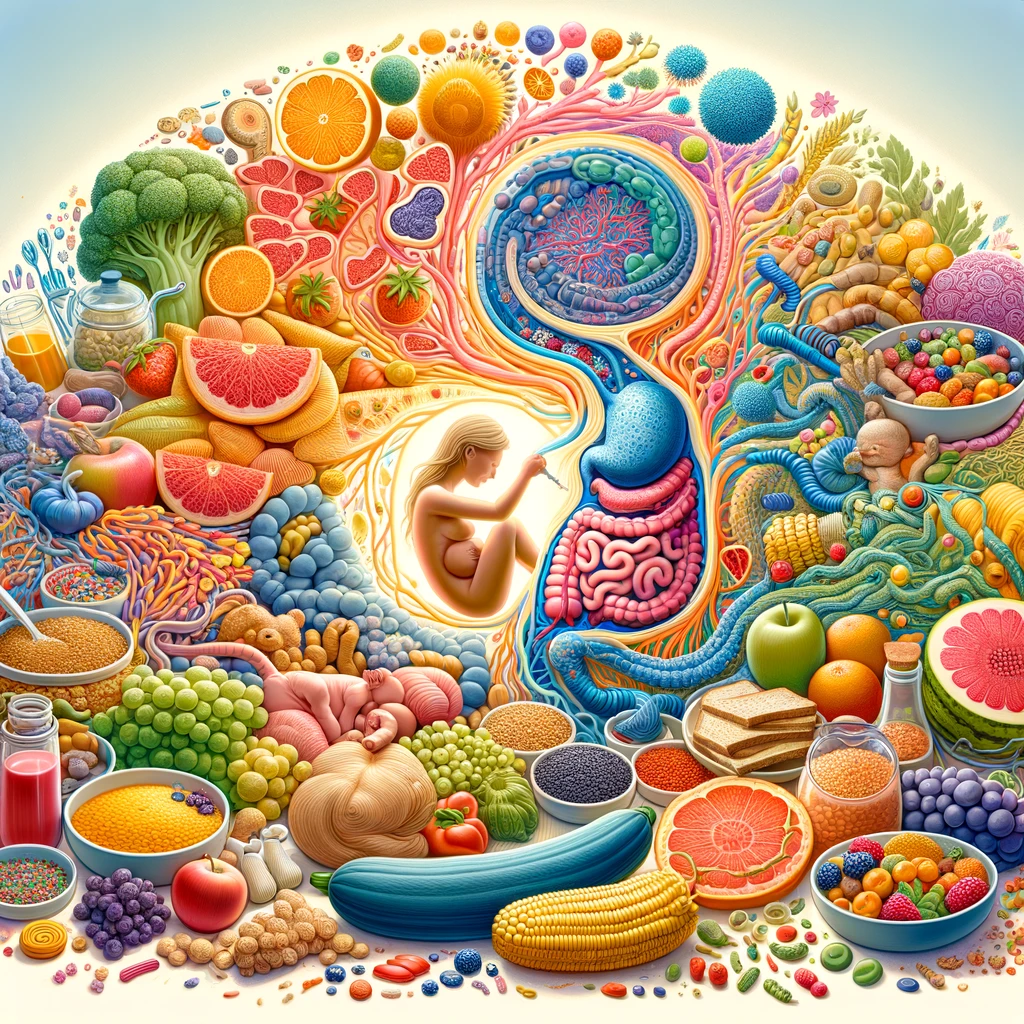Pregnancy marks a pivotal period not just in the life of a mother, but also in the initial development of her baby. Recent research, such as the systematic review conducted by Maher and colleagues, emphasizes how a mother’s diet can significantly influence both her gut microbiome and that of her newborn. This study reveals the profound impact that dietary choices during pregnancy have on the composition of gut microbiota, highlighting the connection between what a mother eats and the microbial environment passed on to her child.
Unveiling the Dietary Influence
The review meticulously analyzed several studies to draw its conclusions. It found that the maternal diet, especially the intake of high-fat foods, fiber, and fat-soluble vitamins, plays a crucial role in determining the diversity and composition of the gut microbiome in both the mother and her baby. Interestingly, while high-fat diets tend to decrease microbial diversity, the intake of dietary fiber was positively associated with microbial diversity. These findings underscore the importance of a balanced diet rich in fibers and low in unhealthy fats during pregnancy.
Beyond Diet: The Microbiome’s Influence on Health
The gut microbiome, a complex community of microorganisms residing in our digestive tracts, is known to influence a broad spectrum of health outcomes, from metabolic processes to immune system strength. The study underlines how maternal dietary patterns can shape the early microbiome landscape of infants, potentially setting the stage for their future health. By fostering a diverse and beneficial microbial environment through dietary choices, expectant mothers can contribute positively to their child’s health, including reduced risks of developing conditions such as allergies, obesity, and even certain autoimmune diseases later in life.
Implications for Future Mothers
This systematic review illuminates the tangible link between diet and the gut microbiome in the maternal-infant dyad, offering valuable insights for expectant mothers. By understanding the impact of their dietary choices, mothers can take proactive steps towards optimizing their diet for the benefit of their own health and that of their babies. Embracing a diet rich in fibers, low in saturated fats, and balanced in vitamins could be a key strategy for enhancing the gut microbiome’s health-promoting effects.
Moving Forward: Dietary Recommendations
Given the findings of this review, healthcare professionals and dietitians are in a position to recommend dietary adjustments for pregnant women that could significantly benefit both their and their infants’ gut health. This might include the promotion of diets rich in fruits, vegetables, whole grains, and lean proteins, while limiting the intake of processed foods and high-fat content. Further research is crucial to deepen our understanding of the exact mechanisms and long-term impacts of these dietary influences, potentially leading to more tailored and effective dietary guidelines for expectant mothers.
References
1. Maher, S. E., O’Brien, E. C., Moore, R. L., Byrne, D. F., Geraghty, A. A., Saldova, R., … & McAuliffe, F. M. (2023). The association between the maternal diet and the maternal and infant gut microbiome: A systematic review. British Journal of Nutrition, 129(9), 1491-1499
